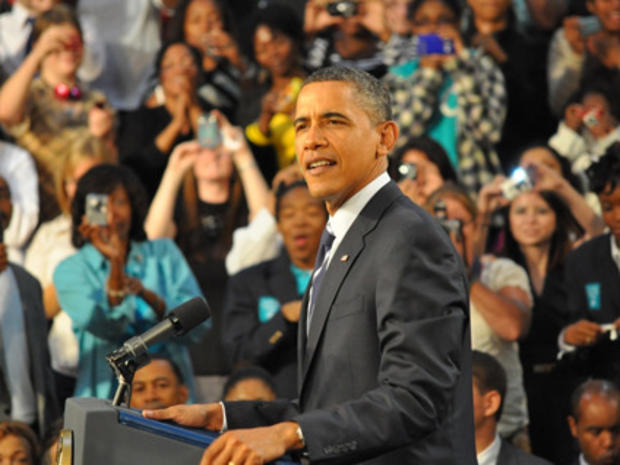Hot Questions: Why the Campaign Could Start Getting Dirty
This post also appears on Slate.
Each week until the election, I'm posting some of the questions I'm trying to answer based on news of the week or something that's come up in my reporting. In the following weeks, I'll try to answer some of these questions. Feel free to weigh in with answers — or with more political questions — at hotsheet@cbs.com or in the comments section below. Here are this week's questions:
Will Obama's plans die with a whimper? This week, President Obama announced two new economic measures: a $50 billion infrastructure investment project and a $200 billion set of tax incentives to spur research and investment. Neither will pass Congress before the election. Republicans are in no mood to deal, and appear to benefit from blocking Obama. So the question is not whether these pieces of legislation will die, but whether they will die without a fight — or even the fake fight with Republicans that might allow some Democrats to at least draw distinctions with the other party that match up with voters' underlying values.
There are a lot of obstacles to bringing Obama's measures to the floor. The first is lack of enthusiasm from his own party. His proposals were met with near-silence. The loudest voices have been in opposition, or at least skeptical. For example, Sen. Michael Bennet of Colorado, facing a tough campaign, said he did not support the infrastructure spending and would only support it if it was paid for with existing stimulus funds. In the House, a few Democrats have spoken out against the measure.
Even if Mr. Obama could somehow find the Republican vote in the Senate to block a filibuster in support of these measures, there just isn't time. The Senate returns for only three weeks before everyone leaves again to campaign. That's barely enough time to welcome the distinguished gentlemen back from vacation. Plus, the agenda is already full. There needs to be a vote on a continuing budget resolution, small-business legislation, and a debate over extending the Bush tax cuts. That's where the big fights are likely to occur, as Democrats try to paint Republicans as favoring the wealthy over the middle class.
How ugly will this campaign get? This week the president told ABC's George Stephanopoulos that if the election is a referendum on the economy, Democrats are in trouble. To avoid doom, they've been trying for months to frame the election as a "choice" between two candidates. (By definition, of course, all elections present voters with just such a "choice." But the administration wants people to think more about the Republican than about their upset with the Obama administration.) One way to do that is to increase the negative attacks on the specific GOP opponent. "If a candidate has a positive ad up right now, they probably won't in a few weeks," says a senior administration official.
So far the deluge has not happened. Democrats are running attack ads against congressional candidates in Wisconsin and Michigan. In Ohio, the Democratic Senate candidate Lee Fisher is tying his opponent Rob Portman to George Bush. But lots of ads are still focusing on introducing the Democratic candidates to voters, like the one from Mary Jo Kilroy, a first-term House member from Ohio. She "voted against the bank bailout," she boasts, creating some distance from the highly unpopular program. But sometimes a positive is a negative. As Factcheck.org pointed out, Kilroy and four other Democrats who claim to have voted against the bank plan weren't in Congress at the time.
Who's the new Mark Critz? After Democrat Mark Critz won the special election in Pennsylvania's 12th District earlier this year, it became a tale that administration and party officials told to one another to ward off the bad spirits. See, a Democrat could win in a toss-up district, even in this terrible year! It was offered to other candidates as a possible route away from a rout in 2012. It was never a clean story, though, because Critz won by distancing himself from the president and Washington Democrats.
Now Democrats will have to find a new Mark Critz, because the original's strategy is probably not something they want to emulate. Critz was among the first Democrats to oppose Obama's new infrastructure program. "$50 billion of additional government spending will do little to create permanent jobs and will only add to our massive deficit," Critz said. "That's why I strongly oppose the president's misguided plan." So now, Pennsylvania's 12th District isn't such a good story for Democrats — if for no other reason than you can't say the key to keeping Democratic losses down is bashing a White House economic gambit designed to keep Democratic losses down. As David Weigel reports, Alan Grayson may be holding his own in a tough district. Perhaps he is the new candidate Democrats can point to. Is there only one?
More from Slate:
Did federal government policy create the Great Divergence?
An interactive inquiry about why America hasn't been attacked again.
The Marine who found two WTC survivors.
John Dickerson is a CBS News political analyst. He is also Slate's chief political correspondent and author of On Her Trail. You can also follow him on Twitter here.

